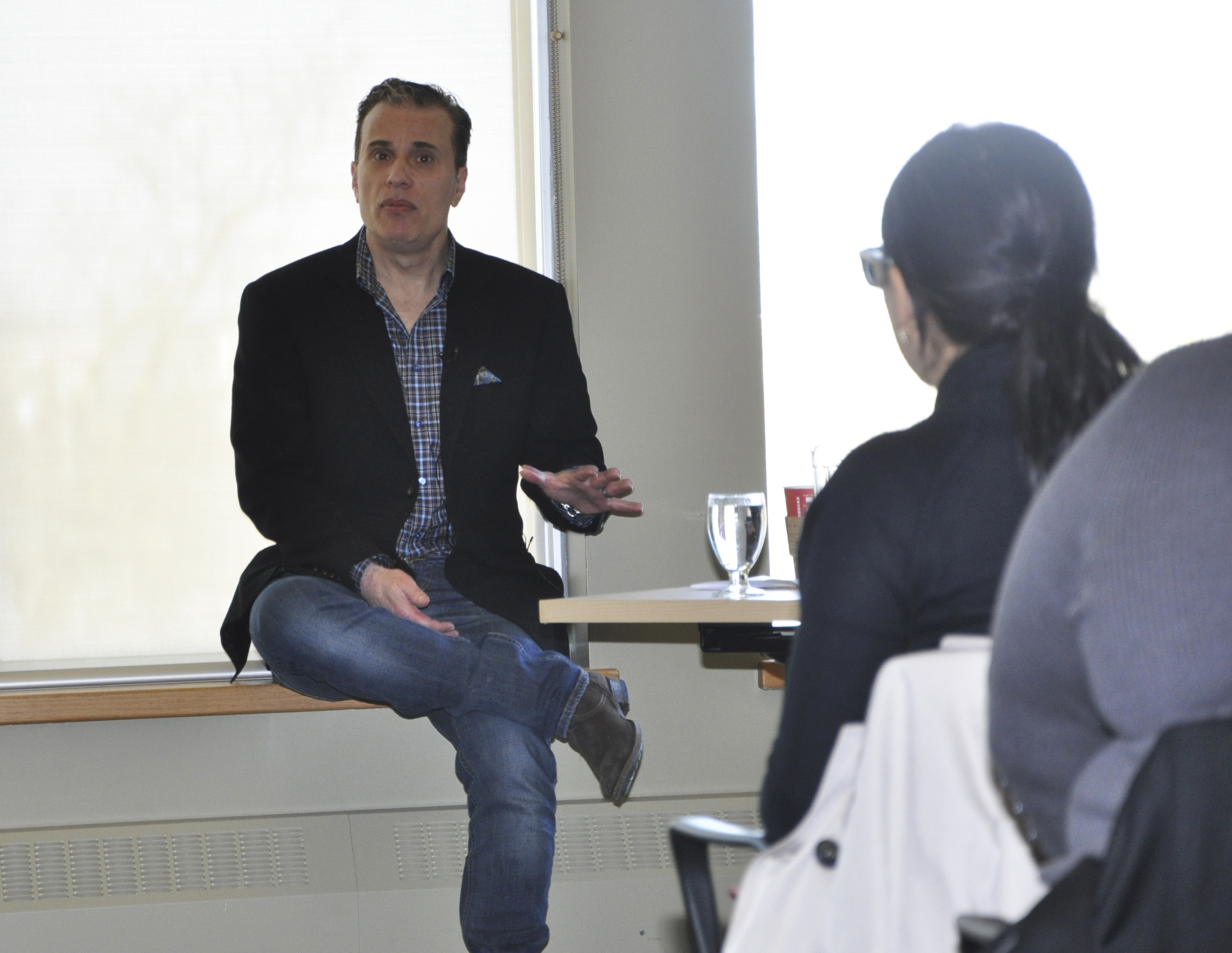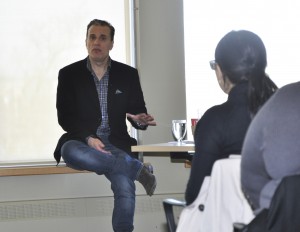Going ‘on’ the record


Michael Landsberg still remembers the moment when he was, as he calls it, “on the edge of the mountain.” It was Grey Cup week 2008, and Landsberg, the host of TSN’s Off The Record, hit a low point in his 15-year struggle with depression.
“It was 3 a.m. on the Tuesday night and I remember thinking ‘if I didn’t know there was help, I would’ve perhaps ended my life,’” said Landsberg Friday morning in Wilfrid Laurier University’s Senate and Board Chamber. “I understood why people end their lives.”
To most, Landsberg is simply a charismatic broadcaster and one of the longest-serving of Canada’s sports media, having worked for TSN since the birth of the network in 1984. However, for the past 15 years, Landsberg has been struggling with chronic depression, a struggle he shared at WLU on Friday.
Landsberg was brought to Laurier through a joint effort between the WLU Grad Students’ Association and the Wilfrid Laurier University Students’ Union.
“He’s very comfortable talking about [mental health] and we hope that makes other people feel comfortable talking about it too,” said Kyle Walker, director of member services for WLUSU.
“I don’t think we could’ve picked anyone better for what we were trying to get out of it.”
Though most of Landsberg’s 15-year struggle with depression remained private, earlier this year he produced a documentary called Darkness and Hope: Depression, Sports and Me which shed light on the topic.
The documentary brought together former Olympian Clara Hughes, former major league baseball player Darryl Strawberry and former NHL player Stephane Richer to discuss their struggles with mental illness.
It was three years ago with Richer as a guest on his show, that Landsberg first talked publicly about his depression.
“I did it, not to do something great for humanity, I did it just because I thought it would make for good television, but after that my e-mail inbox exploded,” said Landsberg, describing numerous e-mails from people who were going through similar mental struggles.
While Landsberg’s profession has given him an outlet to bring mental health into the public eye, it can also be a struggle.
“When you work in television, you don’t project bad feelings. I am a professional deceiver,” he said. “For three months, everyday, I deceived people.”
Landsberg admitted that even now he has good and bad days, revealing that even as recently as when he was covering the London Olympics this past summer, there were instances when he “didn’t want to be there.”
“I’ve done more or as much TV as anyone in Canada, yet I can still have a bad day and think ‘I can’t do this,’” he added.
According to Landsberg one of the most difficult aspects of living with depression or being close to someone with a mental illness is detecting it.
“Those of us that suffer can put on a mask,” he said. “We … get pretty good at pretending.”
One of the most tragic cases of someone with a mental illness “wearing a mask” is that of Wade Belak, an NHL player who for years privately struggled with depression before committing suicide last year.
“Two weeks before [Belak’s death], he was at my house eating pancakes,” said Landsberg who was close friends with Belak. “He was a guy who had the mask on, he was the life of the party, everyone loved him.”
Before leaving to a standing ovation, Landsberg left the audience with a simple message he hopes will break the stigma that surrounds mental illness: “You have the power to reach out. The power to be an ear.”



